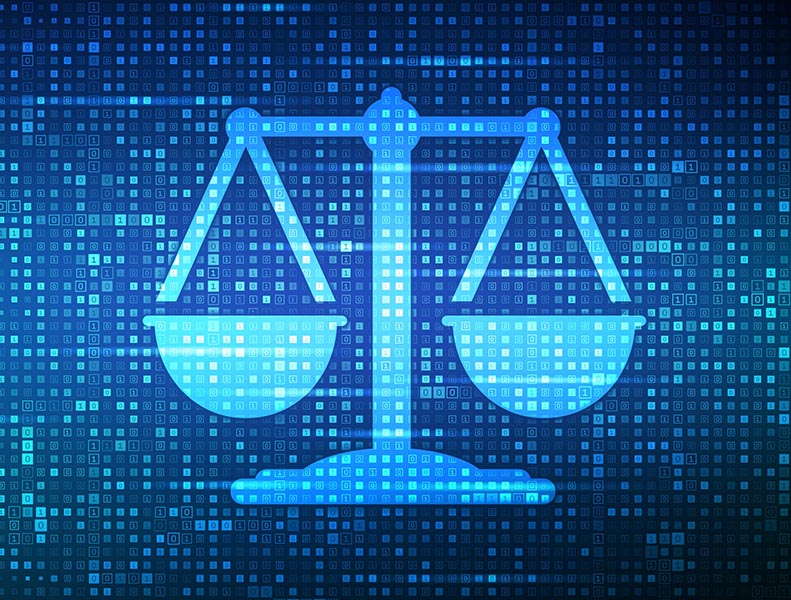Focus on rights in the digital age
The context for rights is changing as societies further enter the digital age. Technological ubiquity has transformed the everyday lives of billions of people and has created new public spheres, new spaces for expression and new markets and services. Chatting online, sharing content on social media, shopping online, using connected objects and reading the news or making payments on a smartphone are all digital interactions that represent new possibilities for exercising individual and collective rights in the digital age. However, acknowledging and understanding the disruptive effects of digital technologies is critical in ensuring the continued protection of the rights upon which our societies are built. Citizens are increasingly wondering if and how governments can protect their rights in the digital age and whether existing policies and legal safeguards are fit for purpose. For instance:
- What does privacy mean in an era where real-time data collection is the norm, with potential risks of data breaches, identity theft or online fraud?
- Can we fully enjoy our freedom of expression across all digital tools and platforms, without fear of censorship or profiling?
- Can everyone have equal access to safe and trustworthy information, when harmful content and untruths are widely disseminated online?
- How can we make sure that new technologies contribute to bridging the digital divide, instead of worsening existing inequalities?
As technologies keep evolving at a fast pace, it is fundamental to reassess and adapt our conceptual and regulatory frameworks in order to maintain rights in the digital age, but also to ensure effective enforcement and redress mechanisms.
Despite the risks, digital technologies bring new opportunities to exercise and enjoy our rights
The digital age offers tremendous opportunities to communicate, work, consume, learn and create, as well as to participate in democracy and economy in new ways. From artificial intelligence, the Internet of Things and robotics, to cloud computing, data portability or 3D printing: it is clear how new technologies have radically transformed our daily lives, allowing us to communicate instantly and across borders, to access and share information, socialise and express ourselves. By opening up new possibilities in education, employment and health, they add value to society and enhance economic and social well-being, including in times of crisis, as evidenced during the COVID-19 pandemic.
Similarly, new technologies can be a driver for citizens’ empowerment by providing near-limitless communication and connection channels, ranging from commerce to smart cities and administration, or participation in civil society and public life. Going further, the digital age might call for rethinking our philosophical and ethical models, for example by questioning the boundaries between our consciousness and our body, with new perspectives in neuroscience, immersive technologies and transhumanism. In the midst of all these developments, we must ensure that our policy and legal tools are adequate to protect existing and future rights in the digital age, forging a strong social contract that leaves no one behind.
The OECD is exploring the issue of rights in the digital age
The OECD, and notably its Committee on Digital Economy Policy, has long been at the forefront of these developments conducting research and analysis, as well as providing policy advice on the impact of the digital transformation on our societies and economies. The OECD has produced key standards to guide countries in different aspects of the digital transformation, including Recommendations on broadband connectivity, artificial intelligence, children in the digital environment, enhancing access to and sharing of data, digital security of critical activities, and Guidelines on the protection of privacy and transborder flows of personal data. The OECD is also currently developing a voluntary transparency reporting framework for terrorist and violent extremist content online.
Countries have been addressing the challenges associated with rights in the digital transformation in various ways, accounting for their different institutional configurations, priorities and perspectives. In 2022, the OECD and the Spanish government are co-hosted a series of three workshops to provide an overview of the key issues and the different paths that policy makers have undertaken:
- Some countries have opted for broad policy frameworks around digital rights, e.g. digital transformation across levels of government;
- Others have begun exploring the development of new digital rights in specific domains, mapping selected gaps, e.g. the need for algorithmic transparency and accountability for decisions made by artificial intelligence;
- Some countries have prioritised protecting rights online in the same way they are protected offline.
The OECD’s multi-stakeholder approach and focus on like-mindedness and shared values provides an ideal platform to launch this dialogue. It aims to play a decisive role as an international forum for setting directions and standards, supporting countries in addressing policy challenges and sharing good practices to ensure a human-centric digital transformation.
Report
 |
Rights in the digital age: Challenges and ways forward |
Workshop 1.
Standing our ground:
A common dialogue on digital rights
This first workshop took place on 12 April 2022 at OECD Headquarters in Paris. It provided an overview of different approaches to protect and enforce rights in the digital age by examining different country practices, as well as legal and conceptual frameworks for putting citizens’ rights at the centre of the digital transformation. Key participants included the European Commission, Italy, Japan, Spain, the United Kingdom, Ranking Digital Rights and UNESCO.
- Agenda (pdf)
Workshop 2.
Freedom of expression and privacy in the digital age
This online workshop on 28 June 2022 was open to the public. It dove into freedom of expression and privacy in the digital age. This included looking into how the context and content of rights is changing, how to enforce rights while mitigating risks for abuse, and how to identify and address potential gaps in different policy approaches observed. It brought together high-level policy makers and practitioners from government, business, academia and civil society.
- Agenda (pdf)
Workshop 3.
Emerging technologies and rights in the digital age
Drawing on key takeaways from the prior workshops, this third workshop held on 18 October 2022 explored some of the pressing challenges and opportunities that emerging technologies may create for the enjoyment of people’s rights. Such challenges include regulatory gaps that may arise when existing legal frameworks become inadequate, e.g. because of changes in enforcement options or capabilities given digital technological developments.
- Agenda (pdf)

